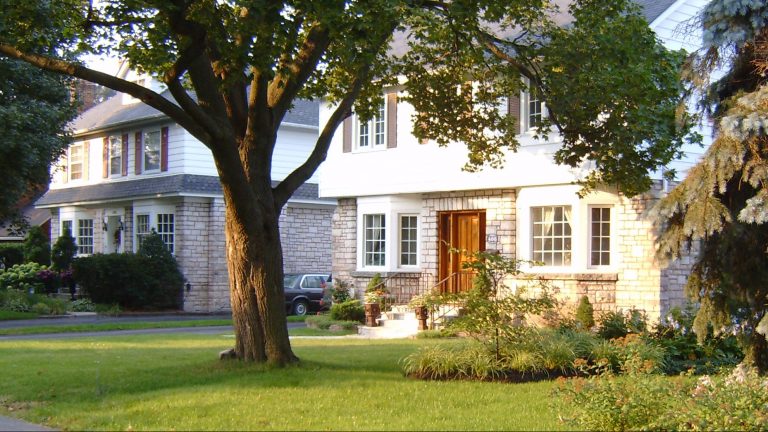When buying a home, the neighbourhood you select will not only play a pivotal role in your family’s life, but in the resale value of the property.
One person’s ideal neighbourhood however may vary greatly from another’s. But, regardless, there are some needs and wants that generally do not change. The distance from your new home to schools, churches and shopping, for example, will not only affect how you and your family settle into your new home, it will also draw or turn off a perspective buyer.
A good first step is to enlist the services of a REALTOR® who works in the area you are thinking of moving. REALTORS® are very familiar with the communities in which they work and can answer many of the questions you will develop during your search.
Check the lifestyle
A home is a part of a larger community. And some are more desirable than others. Some communities are geared more to young families, others to older adults and still others to singles or an eclectic mix of residents.
Never buy in an unfamiliar community or neighbourhood unless you have spent some time there both during the week and on weekends, day and night. Drive and walk around. Talk to store owners and people you meet on the street. Ask what they think of the neighbourhood.
If there are vacant tracts of land where you plan to buy, check with local authorities to see what the proposed land use might be. The last thing most homeowners want is the development of a mall or a high-rise office building across the road from their newly-purchased property.
Don’t let particular things in a home that appeal to you override its location and potential subsequent resale value. When analyzing a potential property, ask yourself if you can imagine living — not just in this home — but in this neighbourhood for quite a long time.
Remember that someday you may have to sell your home to someone else and things that may not be important to you — such as distance to schools, shopping, doctors and work — may be important to other buyers.
Location, location
In addition to finding the right neighbourhood, consider the immediate homes around the particular property you want to buy. Are they well maintained and worth the same or more than the home you are considering?
Is the location a quiet area or a major traffic thoroughfare? What kind of privacy does the backyard provide? Does it get the morning or afternoon sun? If there is no house behind you, who owns the property and how will it be developed?
Homes located further away from the centre of an urban area are generally cheaper. Are you prepared to invest the time and money it takes to commute and how long of a commute are you prepared to commit to? Is there public transit and good access to major highways nearby?
If you have kids in school, what kinds of schools and services are available? Will your kids have to be bused to their school? If a school is close by, will they have to cross any major intersections?
Being close to a school, on the other hand, may have some drawbacks — few owners want the noise and disturbance of being located right next door.
Finding malls, grocery and specialty stores in urban, residential areas is rarely a problem. But in neighbourhoods further away from urban areas, you may need to drive to the nearest convenience store. And getting to the local grocery store, pharmacy and other support services may require an even longer trek.
It’s great to be located near parks and recreational facilities, but few homeowners appreciate the high cast of tennis court lights beaming into their back yard. If the home you are considering backs onto such property, drive around the area and see how often the baseball diamonds, soccer fields, swimming pools and skating rinks are being used and when.
More serious concerns are having such things as gas stations, airports, railway tracks, commercial developments, major highways and cemeteries very close by.
Finally, if your heart is set on finding that one-of-a-kind 150-year old Georgian home, you’re not going to find it in a newer development. If you want large bedrooms and bathrooms, narrowing your search to an older part of town where homes are generally smaller, may prove disappointing.
Before making any decisions, think of your lifestyle and how a particular location would enhance or detract from it.


